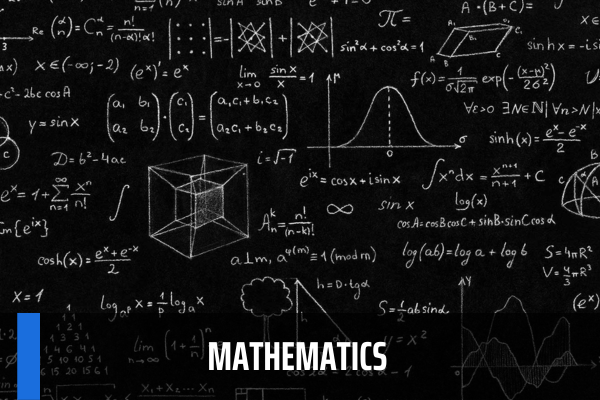The 2018 general education program in Vietnam: What is the goal of Math in developing Math abilities?
The 2018 general education program in Vietnam: What is the goal of Math in developing Math abilities?
In the Math Program issued with Circular 32/2018/TT-BGDDT, it is clearly stated as follows:
General objective
The Math program helps students achieve the following main goals:
a) Form and develop mathematical capacity includes the following core elements: mathematical thinking and reasoning capacity; mathematical modeling capacity; mathematical problem solving ability; mathematical communication capacity; ability to use tools and means to learn mathematics.
b) Contribute to the formation and development of students' key qualities and general abilities at levels appropriate to the subject and level specified in the Master Program.
c) Have general, basic, and essential mathematical knowledge and skills; Develop the ability to solve problems with interdisciplinary integration between Mathematics and other subjects such as Physics, Chemistry, Biology, Geography, Informatics, Technology, History, Art,... ; Create opportunities for students to experience and apply mathematics into practice.
d) Have a relatively general understanding of the usefulness of mathematics for each related profession as a basis for career orientation, as well as have minimum capacity to mathematic-related issues throughout life.
According to the above regulations, the goal of Mathematics in the 2018 general education program is to help develop Mathematical abilities including core elements including:
- Competence in mathematical thinking and reasoning;
- Competence in mathematical modeling;
- Competence in solving mathematical problems;
- Competence in mathematical communication;
- Competence in using tools and means to learn mathematics.

The 2018 general education program in Vietnam: What is the goal of Math in developing Math abilities? (Image from the Internet)
What is the goal of Math for primary school students in Vietnam?
The Math Program issued with Circular 32/2018/TT-BGDDT clearly states the goals that primary school students need to achieve in math as follows:
- Contribute to the formation and development of mathematical capacity with the following requirements: be able to perform thinking operations at a simple level; Ask and answer questions when reasoning and solving simple problems; Select mathematical operations and arithmetic formulas to present and express (speaking or writing) content, ideas, and ways to solve problems; be able to use mathematical language combined with ordinary language and physical movements to express mathematical content in simple situations; Can use simple math learning tools and equipment to perform simple math learning tasks.
- Have basic, essential mathematical knowledge and skills about:
+ Numbers and calculations: Natural numbers, fractions, decimals and calculations on those sets of numbers.
+ Geometry and Measurement: Observe, recognize, describe the shapes and characteristics (at a visual level) of some flat and cubic shapes in practice; create some simple geometric models; calculate some geometric quantities; develop spatial imagination; Solve some simple practical problems related to Geometry and Measurement (with common measuring quantities).
+ Statistics and Probability: Some simple statistical and probability elements; Solve some simple practical problems associated with some elements of statistics and probability.
- Along with other subjects and educational activities such as Ethics, Nature and Society, Experiential Activities,... contribute to helping students have initial understanding of some careers in society.
What is the goal of Math for lower secondary school students in Vietnam?
The Math Program issued with Circular 32/2018/TT-BGDDT clearly states the goals that lower secondary school students need to achieve in math as follows:
- Contribute to the formation and development of mathematical capacity with the following requirements: be able to ask and answer questions when reasoning, solve problems, perform reasonable reasoning when solving problems, prove the mathematical proposition is not too complicated; be able to use mathematical models (mathematical formulas, algebraic equations, representations,...) to describe situations that appear in some practical problems that are not too complicated; be able to use mathematical language in combination with ordinary language to express mathematical content as well as demonstrate evidence, methods and results of reasoning; present ideas and how to use mathematical tools and means to perform a learning task or to express mathematical arguments and proofs.
- Have basic mathematical knowledge and skills about:
+ Numbers and Algebra: Number system (from natural numbers to real numbers); calculate and use calculation tools; algebraic language and symbols; transform algebraic expressions, equations, systems of equations, inequalities; Use functional language to describe (model) some processes and phenomena in practice.
+ Geometry and Measurement: Geometry and Measurement content at this level includes Visual Geometry and Plane Geometry. Visual geometry continues to provide language, symbols, and descriptions (at a visual level) of real-life objects (flat shapes, cubes); create some common geometric models; calculate some geometric elements; develop spatial imagination; solves some simple practical problems associated with Geometry and Measurement. Plane geometry provides knowledge and skills (at the level of logical reasoning) about geometric relationships and some common plane shapes (points, lines, rays, line segments, angles, two parallel lines , triangle, quadrilateral, circle).
+ Statistics and Probability: Collect, classify, represent, analyze and process statistical data; Analyze statistical data through frequency and relative frequency; recognize some simple statistical rules in practice; use statistics to understand basic concepts of the empirical probability of an event and the probability of an event; Recognize the meaning of probability in practice.
- Contribute to helping students have initial understanding of careers associated with Mathematics; have a sense of career guidance based on one's own abilities, interests, conditions and circumstances; orientation after secondary school (continuing further education, vocational training or participating in working life).
LawNet